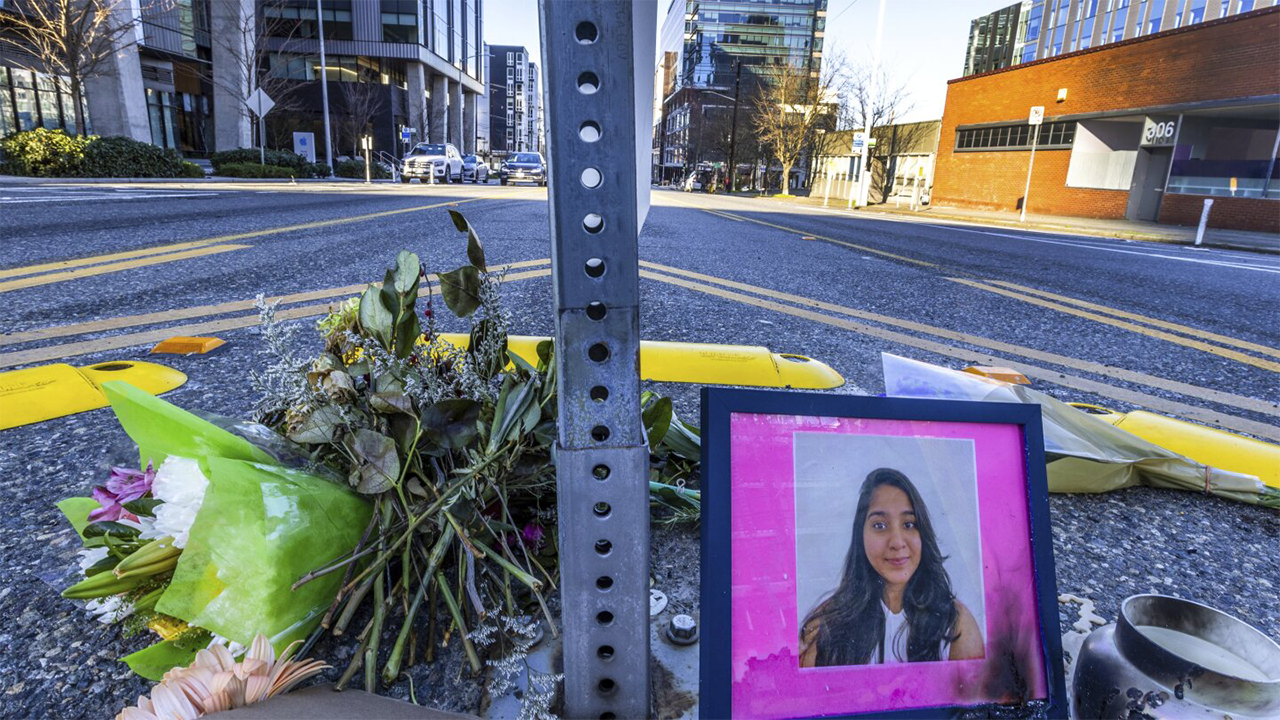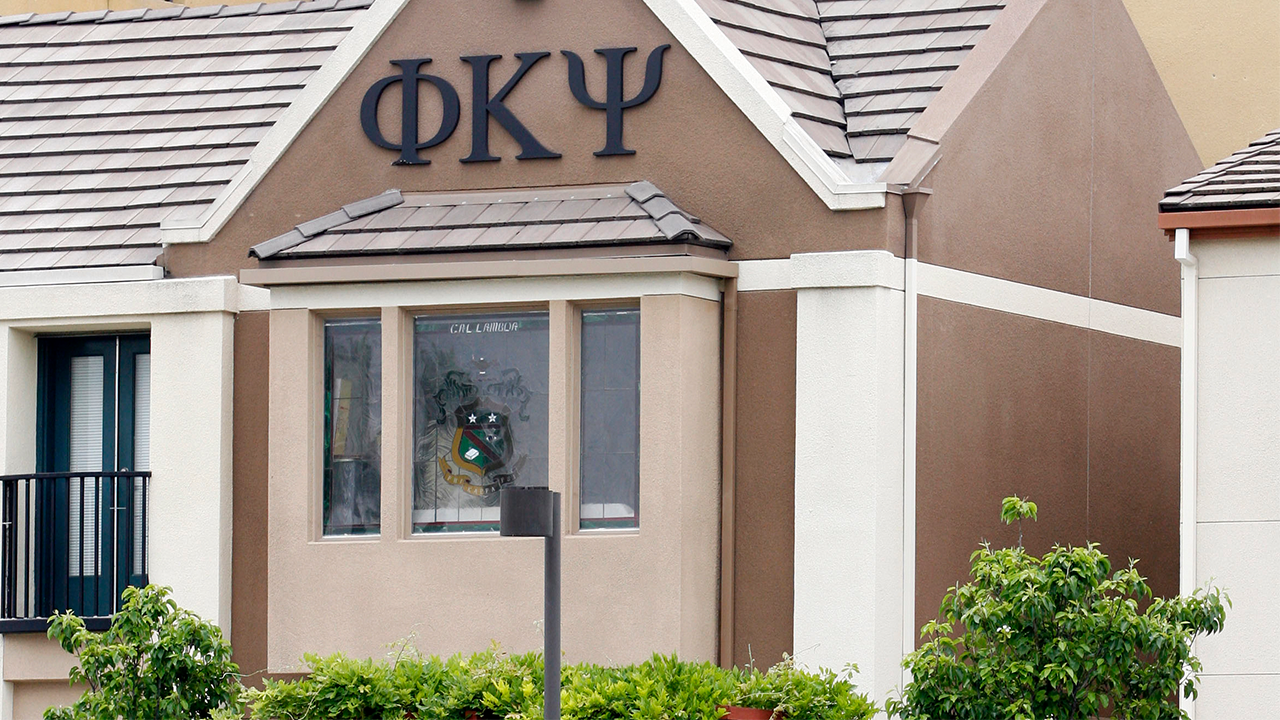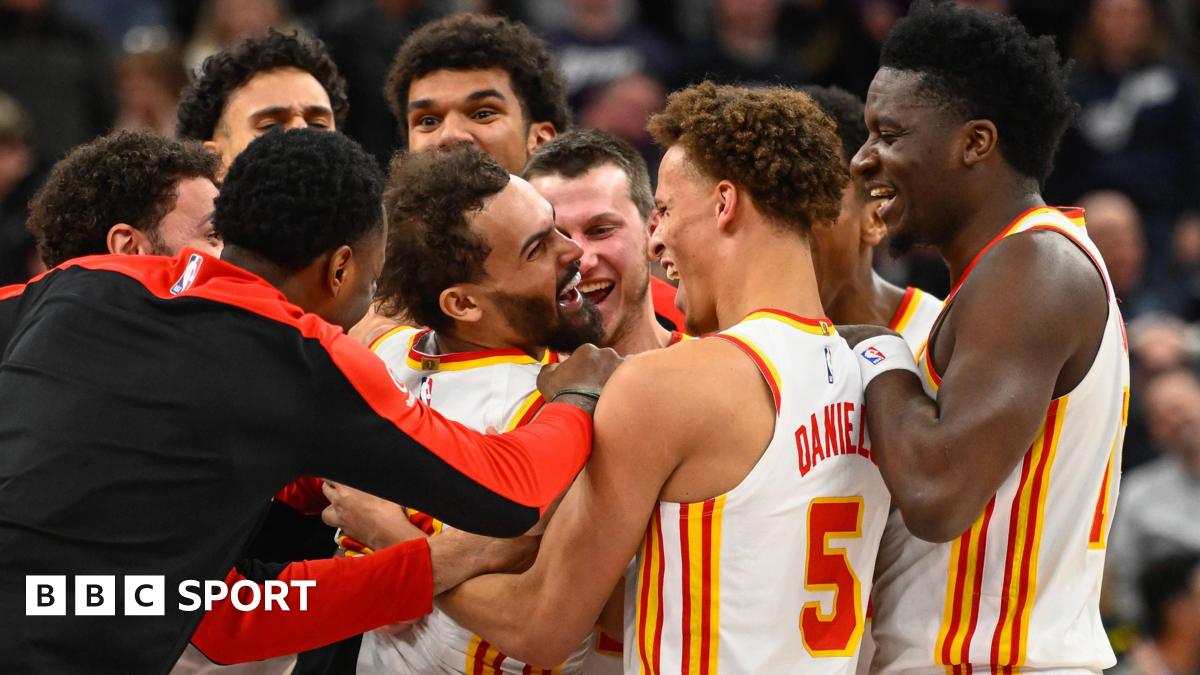Minneapolis, MN
Minneapolis agrees to overhaul police training and policies following Floyd murder

Assistant Attorney General Kristen Clarke of the Justice Department’s Civil Rights Division, flanked by Minneapolis Mayor Jacob Frey, left, and Chief Brian O’Hara of the Minneapolis Police Department, speaks at a news conference at the U.S. Courthouse in Minneapolis, Monday, Jan. 6, 2025.
Jeff Wheeler/AP/Star Tribune
hide caption
toggle caption
Jeff Wheeler/AP/Star Tribune
MINNEAPOLIS — The Minneapolis City Council on Monday approved an agreement with the federal government to overhaul the city’s police training and use-of-force policies in the wake of the murder of George Floyd.
The deal incorporates and builds on changes the Minneapolis Police Department has made since Floyd, a Black man, was killed by a white officer in 2020, prompting a national reckoning with police brutality and racism.
The 171-page agreement, filed in federal court shortly after the council voted 12-0 to approve it, says the department will require its officers to “promote the sanctity of human life as the highest priority in their activities.” It says officers must “carry out their law enforcement duties with professionalism and respect for the dignity of every person.” And it says they must not allow race, gender or ethnicity “to influence any decision to use force, including the amount or type of force used.”
The agreement, known as a consent decree, will put the department under long-term court supervision. It had been under negotiation since the Department of Justice issued a scathing critique of the city’s police in June 2023.
Department officials alleged that police engaged in systematic racial discrimination, violated constitutional rights and disregarded the safety of people in custody for years before Floyd was killed. The report was the result of a sweeping two-year investigation that confirmed many citizen complaints about police conduct. It found that Minneapolis officers used excessive force, including “unjustified deadly force,” and violated the rights of people engaged in constitutionally protected speech.
“George Floyd’s death was not just a tragedy, it was a galvanizing force for the city and for the nation,” Assistant Attorney General Kristen Clarke, head of the Justice Department’s Civil Rights Division, said at a news conference. “All eyes remain on Minneapolis, and with this consent decree, we now have a roadmap for reform that will help this community heal while strengthening trust between law enforcement and the people they serve.”
An independent monitor will oversee the changes and a judge must approve them. A hearing has not yet been scheduled, but officials hope that approval comes quickly.
During his first administration, President-elect Donald Trump was critical of consent decrees as anti-police. Finalizing the Minneapolis agreement before he returns to office Jan. 20 would make it harder for him to undercut the deal, because changes would require court approval. Clarke declined to predict how vigorously the incoming administration will or won’t try to enforce the consent decree.
The council’s brief public vote followed an hourslong closed-door discussion.
“I’d like to thank our community for standing together, united in this, and for having patience with us as we have traveled a very, very long and challenging journey,” Council President Elliott Payne said after the vote. “We’re just beginning, and we know we have a long way to go. Our success will only be realized when we all work together on what is arguably one of the most important issues in the life of our city.”
Council member Robin Wonsley said in a statement before the vote that she has “no faith that the Trump administration will be a serious partner” in implementing the agreement.

A woman stops to photograph a memorial for George Floyd at The Fountain of Praise church in Houston, June 9, 2020, in Houston.
Eric Gay/AP
hide caption
toggle caption
Eric Gay/AP
“Having a federal consent decree signed and in place is valuable to police reform efforts, but we need to be sober about the fact that it will take local political will to hold the city and the (Mayor Jacob) Frey administration accountable to implementing and enforcing the terms of the consent decree,” she said.
A state court judge in 2023 approved a similar agreement between Minneapolis and the Minnesota Department of Human Rights after the state agency issued its own blistering report in 2022. The state investigation found that the city’s police had engaged in a pattern of race discrimination for at least a decade.
The Justice Department has opened 12 similar investigations of state and local law enforcement agencies since April 2021, many in response to high-profile deaths at the hands of police. Assuming court approval, Clarke said, the department will be enforcing 16 policing “pattern and practices” settlements across the country. She said 30 years of experience shows that they lead to “important and tangible progress toward better, safer, and lawful policing.”
The department has reached agreements with Seattle, New Orleans, Baltimore, Chicago and Ferguson, Missouri. A consent decree with Louisville, Kentucky, after an investigation prompted by the fatal police shooting of Breonna Taylor is waiting court approval. In Memphis, Tennessee, the mayor last month pushed back against pressure for a consent decree there, saying his city has made hundreds of positive changes since the beating death of Tyre Nichols.
Consent decrees require law enforcement to meet specific goals before federal oversight is removed, a process that often takes years and millions of dollars. A major reason Minneapolis hired Brian O’Hara as police chief in 2022 was his experience implementing a consent decree in Newark, New Jersey.
O’Hara noted that the city would be the first in the country to operate under both federal and state consent decrees. He said they showed in Newark that consent decrees can lead to meaningful change.
“We are not going to just comply with its terms, but we will exceed expectations and we will make change real for people on the street,” the chief said. “Together, we will make Minneapolis a place where everyone feels safer, and they know that Minneapolis cops will have their back.”
The mayor told reporters that officers will rise to the occasion.
“I trust the members of this department to show up every day, that you will be committed to being the change reflected in this agreement,” Frey said. “You have the ability, you have the obligation, and you have the responsibility to set the tone. Show the rest of the country, in fact, the rest of the world, what good constitutional policing looks like.”

Minneapolis, MN
Minneapolis, Justice Department reach police reform agreement. What is a consent decree?
Federal consent decrees explained
Explore how Louisville is partnering with the Department of Justice via a consent decree to enhance constitutional policing, public safety and community trust.
The city of Minneapolis has agreed to make systemic reforms to its police department after a federal investigation sparked by the 2020 murder of George Floyd found a pattern of civil rights violations including unjustified deadly force and discrimination.
The city, its police department and federal officials reached a court-enforceable agreement known as a consent decree, the Justice Department announced this week. The agreement aims to prevent excessive use of force and racially discriminatory policing and to protect the public’s First Amendment rights. An independent monitor will be appointed to assess whether the requirements of the decree are being met and report publicly on the city’s progress.
“Through this consent decree, the City and the Minneapolis Police Department have committed to instituting reforms that will make Minneapolis a model law enforcement agency that respects everyone’s civil and constitutional rights,” said Assistant Attorney General Kristen Clarke of the Justice Department’s Civil Rights Division.
The announcement in Minneapolis comes after the Justice Department reached a similar agreement in Louisville, Kentucky, where the 2020 police killing of Breonna Taylor sparked major protests. The Justice Department has been enforcing more than a dozen such agreements over the past four years after Attorney General Merrick Garland reversed a Trump administration policy limiting the use of consent decrees.
Here’s what to know about consent decrees:
What is a consent decree?
The 1994 Violent Crime Control and Law Enforcement Act gave the civil rights division of the Justice Department the power to investigate systemic police misconduct. Of nearly 70 investigations conducted between 1994 and 2016, 20 resulted in the creation of court-enforced consent decrees, according to a 2017 report from the Justice Department.
These decrees are legal agreements requiring changes which are overseen by a federal court and an independent monitor. Conducting the investigations, negotiating the agreements and implementing reforms often take years to complete.
The Justice Department is currently enforcing 15 existing agreements and has opened 12 new investigations into law enforcement agencies since Biden’s term began.
Do consent decrees work?
Consent decrees have been credited with successfully improving some of the country’s 18,000 police departments. In October, the Justice Department and the city of Albuquerque sought to end certain portions of their consent decree after its independent monitor found the city and police department have fully complied with 99% of the consent decree’s terms.
In Ferguson, Missouri, which became an epicenter for police reform after mass protests following the fatal police shooting of Michael Brown in 2014, there were major changes eight years later. Ferguson monitor Natashia Tidwell reportedly cited significant progress in officer training and community policing. The mostly all-white police department is more racially diverse. Traffic stops are less frequent and systems have been set up to hear resident complaints.
But some officials have criticized the court-enforced plans for being expensive, time-consuming and ineffective. Jim Pasco, executive director of the Fraternal Order of Police, previously told USA TODAY consent decrees can exacerbate tension between police and the communities.
The union representing Louisville Metro Police officers filed a motion in federal court opposing the city’s recently signed consent decree, which has not yet been approved by U.S. District Court Judge Benjamin Beaton and enacted. The River City Fraternal Order of Police Lodge 614 argued the 242-page agreement alters working conditions of officers and has the potential to erode the union’s collective bargaining capabilities.
The city of Memphis told the U.S. Department of Justice in a letter last month it will not enter into a consent decree with the government following the completion of its pattern-or-practice investigation into the Memphis Police Department. The investigation was announced months after Tyre Nichols was fatally beaten by officers with the Memphis Police Department’s SCORPION Unit, though the DOJ said it did not start the investigation solely because of that incident.
“We believe there are better ways to reimagine policing that do not slow the process or cost the taxpayers millions of dollars,” the letter read.
What happens next in Minneapolis?
The consent decree in Minneapolis is pending court approval. If enacted, it will require officers to emphasize de-escalation techniques, limit pretextual stops and avoid handcuffing children under the age of 14. The department must also prioritize non-police response to calls involving behavioral health issues, thoroughly investigate complaints and hold officers accountable.
The agreement comes after a 92-page Justice Department report found Minneapolis police used excessive force, unlawfully discriminated against Black and Native American people, violated the rights of people engaged in speech protected by the First Amendment and discriminated against people with behavioral health disabilities.
The investigation was launched nearly a year after former Minneapolis police officer Derek Chauvin knelt on Floyd’s neck for more than nine minutes. Floyd’s death sparked in May 2020 sparked nationwide protests against police brutality and systemic racism.
“Our commitment to securing a federal consent decree has never wavered – it has been a top priority of my administration, and we are ready to act,” said Mayor Jacob Frey.“This agreement reflects what our community has asked for and what we know is necessary: real accountability and meaningful change. I’m grateful to the Department of Justice for their partnership and urgency in helping us finalize this decree, ensuring we didn’t lose this critical opportunity to advance reforms and build on the important work already underway.”
Contributing: Reuters; Bart Jansen, Kelly Puente, and Terry Collins USA TODAY; Lucas Finton, Memphis Commercial Appeal; Josh Wood, Louisville Courier Journal
Minneapolis, MN
Minneapolis’ police consent decree brings hope, skepticism

MINNEAPOLIS — There are mixed feelings about a long-awaited agreement between Minneapolis and the federal government to bring reform to the city’s police department.
The city announced Monday it had agreed on a consent decree, or legal agreement, with the U.S. Department of Justice.
Some of the reforms outlined include changes to the use of force policy, limiting military-style tactics during protests, and banning handcuffing children under 14.
City leaders have said a key purpose of the consent decree is to rebuild the community’s trust in the police department.
KingDemetrius Pendleton, a Minneapolis photojournalist, says it will take more than legal documents and policy changes to do that.
“One of the biggest things is communication and listening to the people in the community,” he said. “If you want us to listen to you all [the police] and trust you all, you all have to be trustworthy. [MPD] can make a change, but it starts with being truthful.”
Pendleton also owns Listen 2 Us Studio, a community gallery near George Floyd Square that displays social justice-themed photography and art.
The consent decree process started after a police officer killed George Floyd in 2020, sparking global protests.
A Department of Justice report released in 2023 found that the Minneapolis Police Department engaged in systematic racial discrimination and unconstitutional policing for years.
Pastor Ian Bethel with the Unity Community Mediation Team worked with the DOJ on the consent decree and co-chairs the city’s Police Community Relations Council.
“I was so grateful and tearful today,” he said.
Bethel says real change will come through diligent community oversight.
“Compliance is the key,” he said. “The community’s going to do it, and the community’s given trust to us, because we’re tried and proven.”
The Minneapolis Police Department is also under a court-ordered agreement with the state of Minnesota, so some reforms are already underway.
A judge still has to approve the consent decree.
It’s unclear what will happen if President-elect Donald Trump takes office before then. He’s been critical of consent decrees in the past.
Minneapolis, MN
Biden admin and Minneapolis agree to police changes, questions loom over whether Trump will strike them down
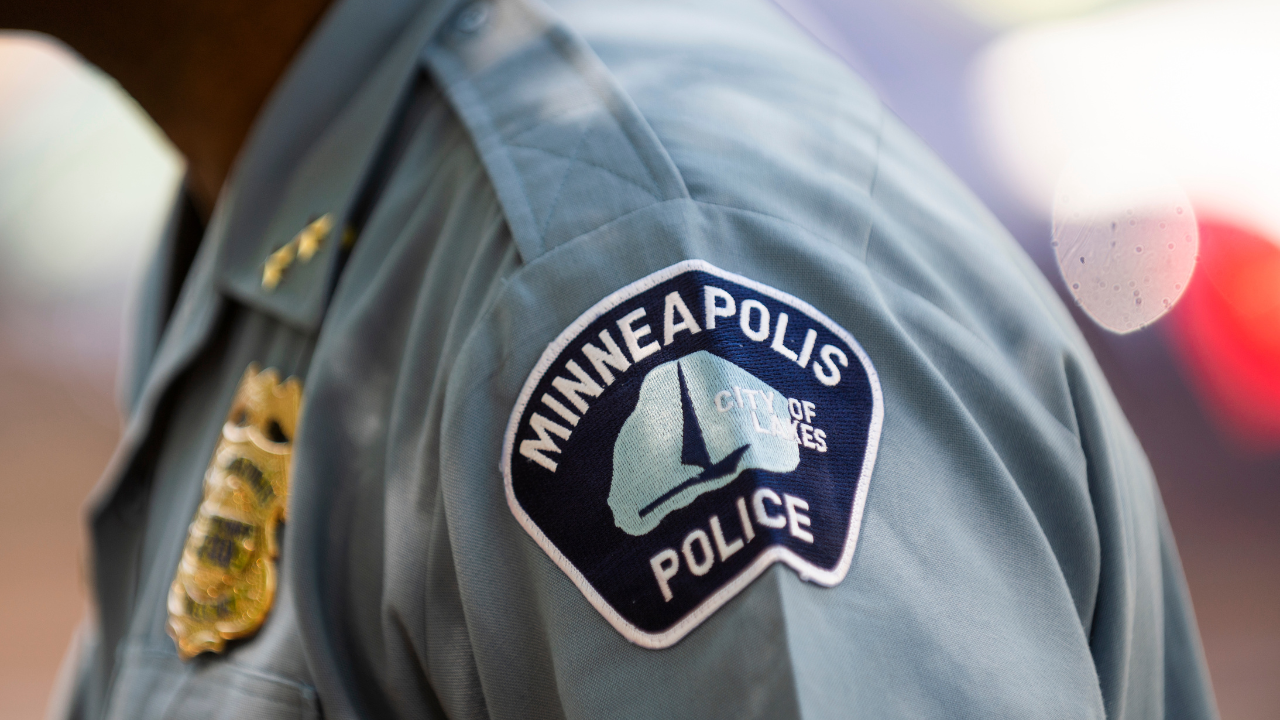
The Biden administration secured an agreement to implement police reforms in Minneapolis ahead of President-elect Donald Trump’s inauguration.
The consent decree agreement Monday with the Minneapolis Police Department follows a similar decree that the department agreed upon with Louisville, Kentucky, police last month. The agreements follow the Biden administration’s initiation of 12 investigations in 2021, which probed possible “pattern or practice” of civil rights abuses by police departments around the country following the anti-police riots that took place after the death of George Floyd in 2020.
Both decrees await approval by the courts. The 171-page Minneapolis agreement would overhaul the city’s police training and use of-force-policies, while requiring officers to “promote the sanctity of human life as the highest priority in their activities.” The decree also mandates that officers must not allow race, gender or ethnicity “to influence any decision to use force, including the amount or type of force used.”
MINNEAPOLIS POLICE STAFFING LEVEL PLUMMETS TO HISTORIC 4-DECADE LOW 3 YEARS AFTER GEORGE FLOYD’S DEATH: REPORT
Other elements of the Minneapolis agreement include bolstering protections for protesters, new data collection requirements aimed at reducing racial discrimination, guidelines restricting officers from going after fleeing subjects, new interrogation requirements, a mandate against racial profiling in investigations, traffic stop reforms and more.
A local resident looks at a police vehicle driving along a street north of Minneapolis on Sept. 9, 2021. (REUTERS/Carlos Barria)
Assistant Attorney General Kristen Clarke of the Justice Department’s Civil Rights Division was asked repeatedly during a Monday press conference from Minneapolis whether the Trump administration could derail the agreement.
“I can’t predict the future,” Clarke said. “What I can tell you is that the findings we identified in Minneapolis are severe. These are real issues that impact people’s lives. The community wants reform. The city wants reform, the police department wants reform, and the Justice Department stands here today as a full partner in the effort of achieving reform and transformation for this community.”
BIDEN DOJ OPPOSES COURT DECISION ALLOWING DEREK CHAUVIN CHANCE TO EXAMINE GEORGE FLOYD’S HEART
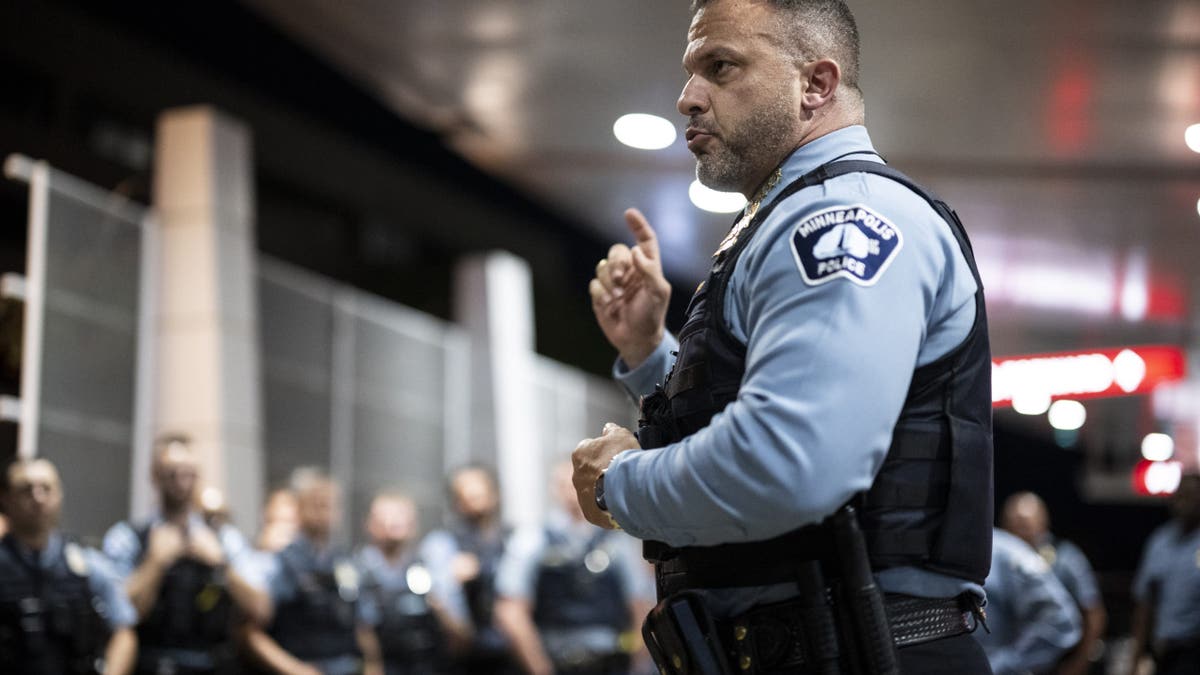
Minneapolis Police Chief Brian OHara addresses more than 100 uniformed law enforcement officers while waiting for the release of an officer who was shot in the line of duty in north Minneapolis, Saturday, Aug. 12, 2023. (Photo by Aaron Lavinksy/Star Tribune via Getty Images)
Meanwhile, in an email to constituents, Minneapolis City Council Member Robin Wonsley said she has no faith that the incoming Trump administration will be a “serious partner” in supporting the recently agreed-upon consent decree.
A similar consent decree agreed upon by the Biden administration and the Loisville police roughly three weeks ago also compels the department to revise its use-of-force policies, places new restrictions around traffic stops and police searches, and challenges how law enforcement deals with protesters.
A local police union in the city is challenging the reforms, calling on a judge not to approve the agreement. Meanwhile, the conservative Heritage Foundation has argued that the point of the consent decree coming so late in Biden’s term is “to bind the Trump 47 Administration and future elected Louisville administrations who may well vehemently and categorically disagree with the Proposed Consent Decree.”
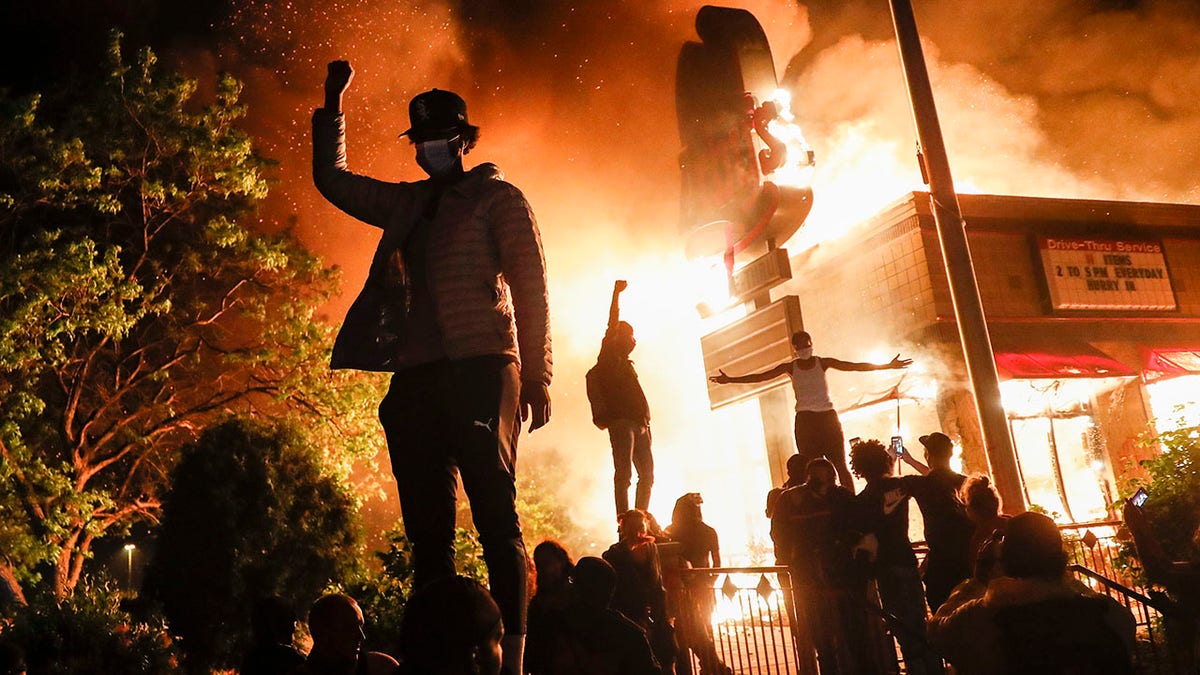
Protestors demonstrate outside a burning fast-food restaurant on Friday, May 29, 2020 in Minneapolis. (John Minchillo)
Both Minneapolis and Louisville were flash points for debates around police reform after both cities saw the high-profile deaths of Floyd and Breonna Taylor in 2020. Both cities, and numerous others, saw protesters rampage through the streets following their deaths, leading to multiple fatalities and billions of dollars in damage that year.
CLICK HERE TO GET THE FOX NEWS APP
Fox News Digital reached out to the Justice Department for comment, but they declined to comment.
-

 Business1 week ago
Business1 week agoThese are the top 7 issues facing the struggling restaurant industry in 2025
-

 Culture1 week ago
Culture1 week agoThe 25 worst losses in college football history, including Baylor’s 2024 entry at Colorado
-

 Sports7 days ago
Sports7 days agoThe top out-of-contract players available as free transfers: Kimmich, De Bruyne, Van Dijk…
-

 Politics5 days ago
Politics5 days agoNew Orleans attacker had 'remote detonator' for explosives in French Quarter, Biden says
-

 Politics5 days ago
Politics5 days agoCarter's judicial picks reshaped the federal bench across the country
-

 Politics4 days ago
Politics4 days agoWho Are the Recipients of the Presidential Medal of Freedom?
-

 Health2 days ago
Health2 days agoOzempic ‘microdosing’ is the new weight-loss trend: Should you try it?
-

 World1 week ago
World1 week agoIvory Coast says French troops to leave country after decades

